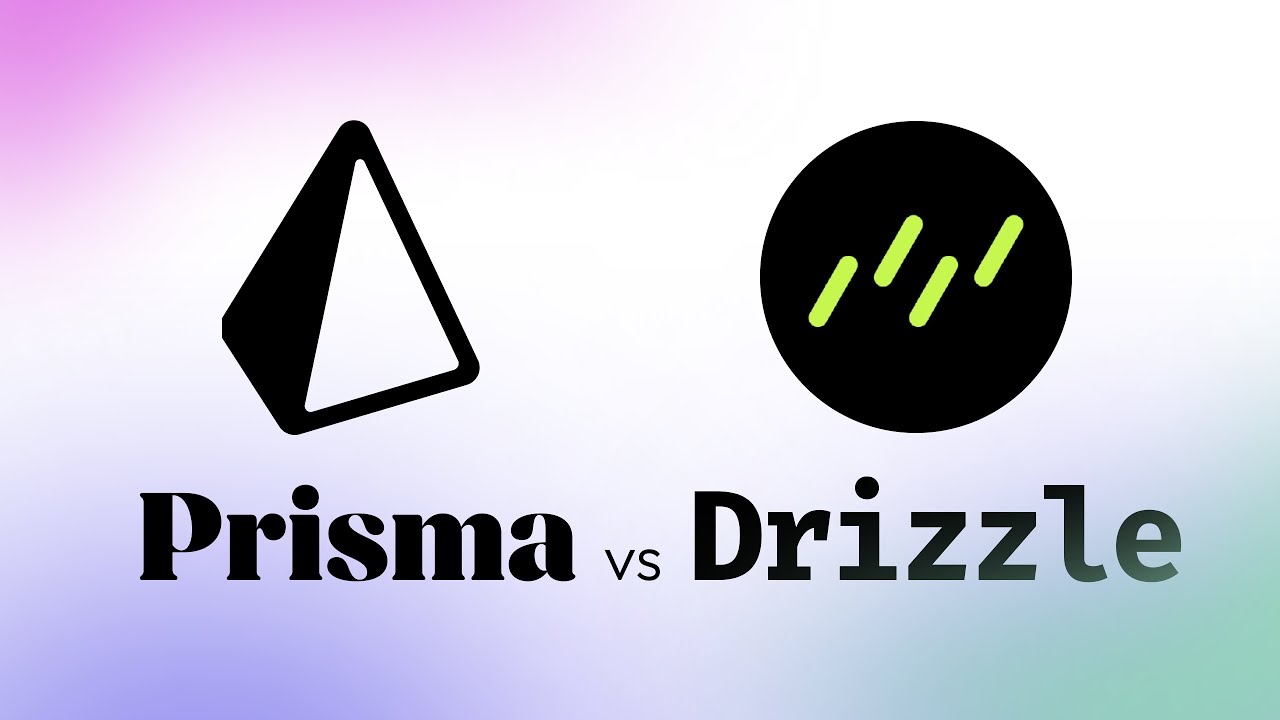When it comes to building web applications, selecting the right ORM (Object-Relational Mapper) can be crucial for both performance and developer experience. In this post, we’re diving deep into two popular ORMs—Drizzle and Prisma—to compare their performance and help you make the best choice for your project.
Both Drizzle and Prisma are powerful, but they approach database management very differently. While Prisma focuses on rich features and high-level abstractions for a better developer experience, Drizzle takes a minimalist approach, prioritizing lightweight performance and edge compatibility.
Let’s break it down and see which one comes out on top for your specific use case.

Drizzle ORM: The Minimalist Powerhouse ⚡
Drizzle ORM is a relatively new contender in the ORM space, designed for performance and simplicity. Its SQL-like syntax ensures that queries are directly translated into native SQL with very little overhead.
Key Features:
- Lightweight Design: Minimal runtime overhead makes Drizzle fast and efficient.
- TypeScript-First: Built specifically with TypeScript in mind, making it perfect for modern development.
- Edge-First Approach: Ideal for serverless environments like AWS Lambda, Vercel, or Cloudflare Workers, where cold start times are critical.
Drizzle shines in situations where you need speed and don’t want unnecessary abstractions. The code is lean, meaning that you have more control over what gets executed under the hood, but this also means there are fewer out-of-the-box features compared to Prisma.
Performance Benefits:
- Cold-Start Performance: Drizzle’s minimal footprint allows for faster cold-start times, particularly in edge or serverless environments.
- Optimized Queries: Direct translation of SQL-like syntax ensures that the queries run fast and without bloat.
Best for:
- Developers who need high control over their queries without the complexity of a large framework.
- Projects with performance-critical needs like serverless apps or edge computing.
Prisma ORM: The Feature-Rich Giant 💪
Prisma ORM, on the other hand, is known for its developer experience. It offers a high level of abstraction with features like automatic migrations, a powerful query engine, and schema management.
Key Features:
- Rich Developer Experience: Auto-generated type safety, migrations, and Prisma Studio make database management a breeze.
- Complex Query Handling: Prisma shines in environments where complex queries, relationships, and aggregations are common.
- TypeScript Support: Prisma also supports TypeScript and offers a great experience for full-stack TypeScript applications.
However, with its power comes a larger runtime footprint. Prisma’s abstraction and additional features can introduce overhead, which might not be ideal for highly performance-sensitive environments.
Performance Impact:
- Heavier Runtime: Because Prisma offers so many features, its runtime is larger compared to Drizzle.
- Cold-Start Delays: In serverless environments, Prisma’s larger runtime can result in slower cold-starts.
- Query Engine: Prisma’s Rust-based query engine is designed for handling complex queries, but simpler queries might perform slightly slower compared to Drizzle.
Best for:
- Developers prioritizing ease-of-use, especially when working with complex queries, relationships, or data modeling.
- Applications requiring advanced features like migrations, type safety, and integrations with GraphQL.
Performance Comparison 💥
1. Query Execution:
- Drizzle: Focuses on generating lean and optimized SQL queries directly, making it faster for simple queries.
- Prisma: Uses its own query engine, which is more feature-rich, but adds overhead for simple queries.
2. Cold Start:
- Drizzle: Being a smaller library, it outperforms Prisma in serverless environments where cold-start time is crucial.
- Prisma: Heavier due to its rich feature set, leading to slightly slower cold starts in environments like AWS Lambda or Vercel.
3. Complex Queries:
- Prisma: Excels when handling complex queries, relationships, and bulk operations thanks to its powerful query engine.
- Drizzle: Better suited for simpler queries and use cases that don’t require advanced relationships or aggregations.
Conclusion: Which One Should You Choose? 🤔
Choosing between Drizzle and Prisma depends on the specific requirements of your project:
-
If you need raw performance and control, or if you’re building a serverless or edge-based app where cold-start time matters, Drizzle is a solid choice. It’s lightweight, fast, and perfect for those who prefer simplicity and efficiency.
-
If you’re working on a project that involves complex relationships, needs automatic migrations, or you prioritize developer experience, Prisma is hard to beat. It provides a wealth of features that make managing a database easier and faster to develop.
Ultimately, Drizzle is about performance and lean architecture, while Prisma is about features and ease of use. Each has its place, and now you have the knowledge to choose the right one for your next project!
💡 What’s Your Take?
Have you used Drizzle or Prisma in your projects? Share your experience and tell us which one worked better for your needs!
🚀 Whether you need the best developer experience or the best performance, both Drizzle and Prisma have something to offer. The right choice depends on whether you value ease of use or raw query speed in your application.
Gleez can help you with our expertise in selecting and optimizing the right ORM solution for your project. Contact us today!
 Gleez
Gleez